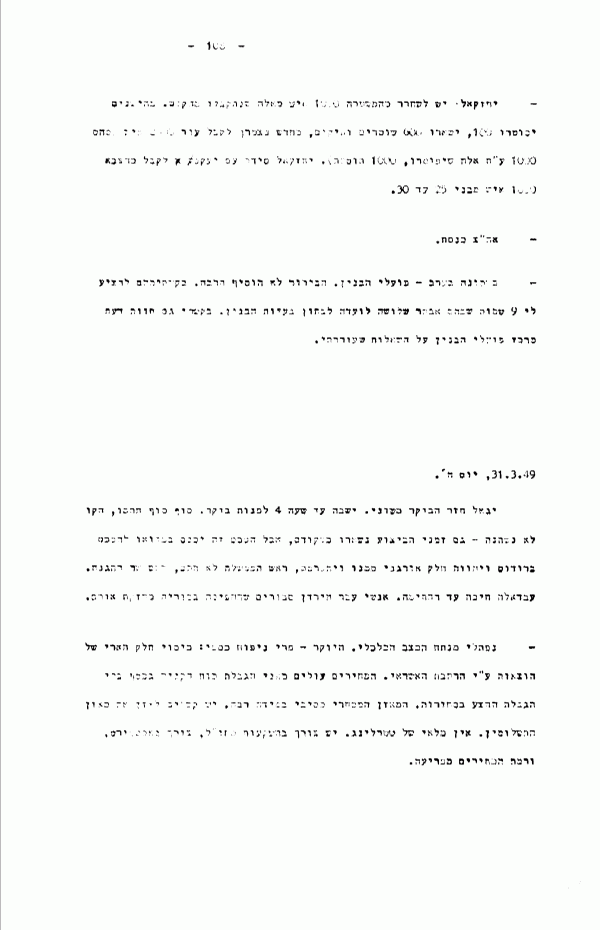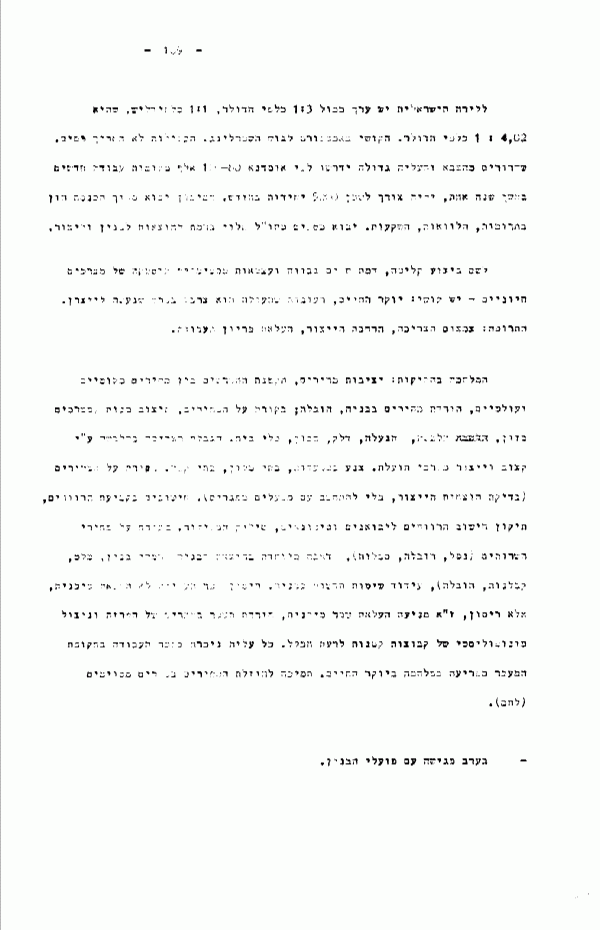1
of
Places:
Bnaya
Nayn
The use of the photograph is subject to the Copyright Law, 2007
31.03.1949
226095
Thursday, March 31, 1949 Yigael [Yadin] returned from Shuni this morning. The meeting went until 4 a.m. Finally they signed. The line didn’t change – the dates of implementation also remained the same as before, but this agreement will be fully incorporated into the Rhodes agreement and will be an organic part of it and will be publicized. The prime minister didn’t sign; the defense minister signed. Abdallah waited until the signing. The Transjordanians believe that the coup in Syria makes them stronger. Naftali analyzes the economic situation. The cost [of living] is a result of financial bloating: covering the lion’s share of expenses by extending credit. Prices are rising because of limitations on cash-based purchasing power without limitations on the supply of goods. The trade balance is largely passive. There are difficulties balancing the payments balance. There are no sterling reserves. [We] need investments from abroad, need export, and the level of prices is interfering. The Israeli lira [P£] has a value of 3:1 in relation to the dollar, 1:1 in relation to the pound sterling, which is 4.02:1 in relation to the dollar. The problem is with export to the Sterling Bloc. The ratio [relative value] won’t last. Discharges from the army and the large-scale immigration will require an estimated 80,000-100,000 new jobs over the course of one year; it will be necessary to house 5,000 units per month. The funding will come from capital income through donations, loans, investments. The infusion of money from abroad depends on the level of expenses for construction and production. In terms of immigrant absorption, a high standard of living, and maximal independence in providing essential goods – there’s a problem: the cost of living, the fact that the immigrant is a consumer before becoming a producer. The remedy: reducing consumption, expanding production, increasing work productivity. The war against rising costs: stabilization of prices, reducing the differences between local and global costs, lowering the costs of construction, transport; price controls, rationing (consumer goods, food, clothing, footwear, fuel, soap, housewares[)]. Curtailing clothing consumption through rationing and the production of utility goods. Austerity in restaurants, hotels, cafes. Price controls (reviewing production costs, not taking into account factories behind schedule [?]). Calculations in determining profits, amending the calculation of profits for importers and wholesalers, eliminating redundancy. Controlling the costs of services (port, transport, portage), paying special attention to construction costs (building materials, cement, contracting, transport), promoting new methods of construction. Restraining employment wages not [by] mechanically freezing [wages], but through restraint; that is, preventing mechanical wage hikes, lowering wages in cases of superfluousness and monopolistic exploitation of small groups to the detriment of the collective. Any significant wage hike during the period of transition undermines the war against the cost of living. Support for the lowering of prices in certain cases (bread). – In the evening a meeting with construction workers.










